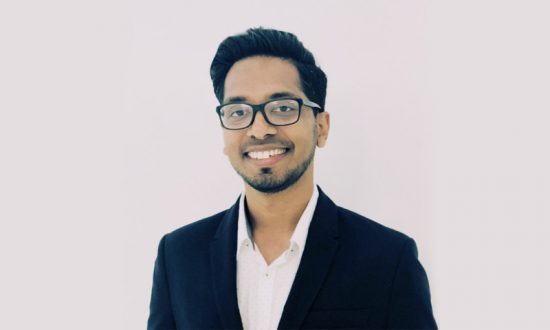Ashish started his career as a Software Engineer with Thomson Reuters Inc., building their flagship investment research solution – Thomson One. He then went on to take multiple executive roles in Program Management and AI before managing the Data Science and Engineering business in the Insurance vertical. Ashish is a university gold medalist in Biotechnology and later went on to study Bentley University’s flagship MBA in 2014 with a 100% scholarship.
After keeping the borders closed for 18 months, US President Joe Biden announced yesterday that starting early November, travel restrictions will be lifted for vaccinated travelers from 33 countries, including India. The news could not have come at a better time when students are just beginning to work out their higher education plans for the upcoming year.
When the COVID-19 pandemic struck, the United States took swift action to close its borders to international travelers. US Embassies across India were operating only to assist US citizens and students wishing to pursue their higher education in the US. Moreover, those who were able to secure visas, had to travel to a country that wasn’t facing a travel ban from the US (like Mexico), quarantine there for 14 days, and then head to the United States. But Joe Biden’s announcement about lifting these restrictions changes everything.
What’s the new policy
On Monday, the White House announced that travel restrictions will be lifted for vaccinated air travelers from 33 countries, including India, China, Brazil, Iran, the UK, and most of Europe. While the exact date on which the restrictions will be lifted is yet to be announced, the rules have been pretty much put in place.
Travelers will be required to carry proof of being fully vaccinated, complete pre-departure testing within 3 days prior to their flight to the US, and show proof of a negative test. What’s more, fully vaccinated travelers will not be asked to quarantine going forward.
How will it affect students
According to a survey by iSchoolConnect, a platform that helps students apply and get into universities abroad, 43% of Indian study abroad aspirants want to study in the US. The survey also reported that, when asked how COVID-19 had affected their study abroad plans this year, 19% of undergraduates and 23% of graduate students said they decided to take a gap year instead of pursuing higher studies in a different country or continue their education in India. Bottom line, the past 2 years have been unpredictable for US study abroad aspirants.
The new policy brings a significant shift in the travel restrictions and has dispelled study abroad aspirants’ uncertainty around pursuing higher education in the US. Now that students know the doors are open, US universities are likely to see a higher influx of applications from the Indian cohort.
The million dollar question
While the new policy has brought with it a lot of optimism, it’s important to note that the US will only allow individuals who have taken a shot (or both the shots) of a CDC (Center for Disease Control and Prevention) approved vaccine.
According to the CDC, a person is fully vaccinated 2 weeks after their second dose of a 2-dose series or 2 weeks after a single-dose vaccine that has been authorised by FDA or WHO. This implies that individuals who have taken a shot of Bharat Biotech’s Covaxin cannot travel to the US.
Travel restrictions likely to ease with time
The US has put strict protocols in place to prevent the spread of Coronavirus as the new system gets implemented. While this will ensure better safety for both international travelers and US citizens, it would also help the US trace how the virus is spreading and modify the policy accordingly. With time, a solution might be found for partially vaccinated or unvaccinated travelers as well. Meanwhile, it would be in the best interest of students to get fully vaccinated with a dose of a vaccine that has been approved by CDC.


